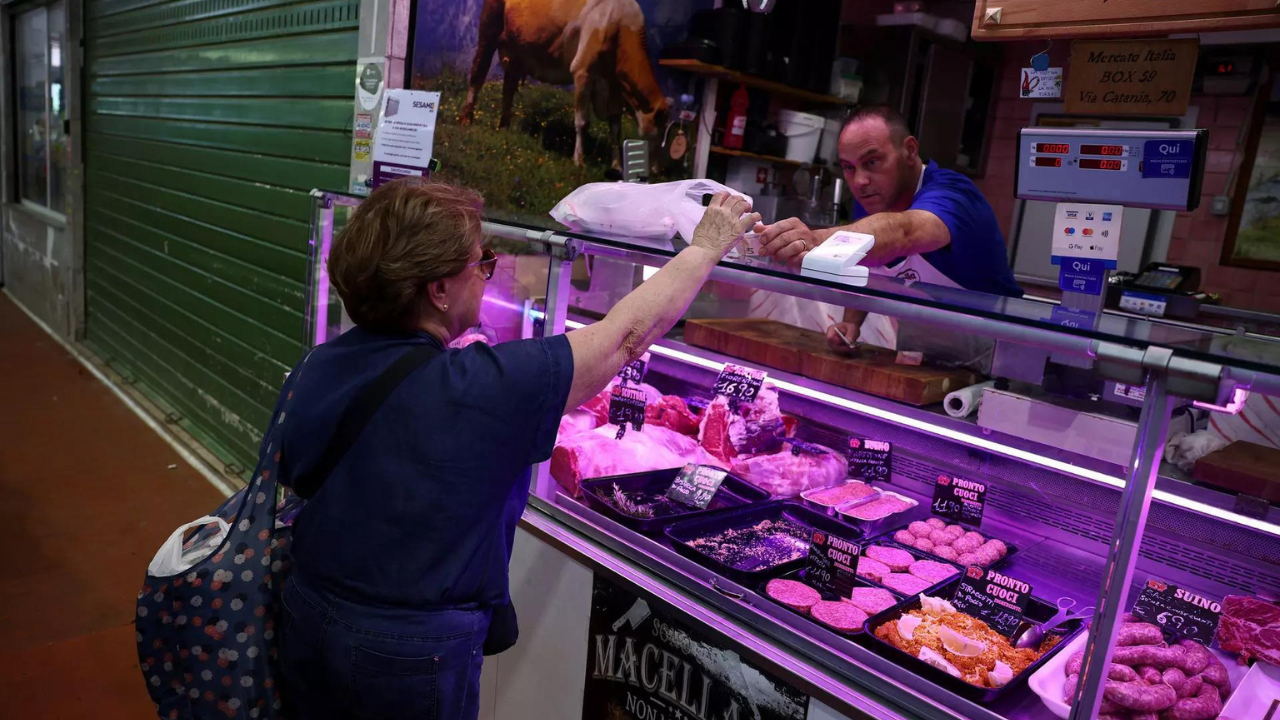NEW DELHI: On Monday, China’s commerce ministry announced the initiation of an anti-dumping investigation into imported pork and its by-products from the European Union, with a focus on Spain, the Netherlands, and Denmark. This move appears to be a response to the European Commission’s decision to impose anti-subsidy duties of up to 38.1% on imported Chinese cars starting from July.
The investigation, which will commence on June 17, was triggered by a complaint filed by the China Animal Husbandry Association on behalf of the domestic pork industry. The probe will cover pork intended for human consumption, including fresh, cold, and frozen whole cuts, as well as pig intestines, bladders, and stomachs. Global food companies are now on high alert for potential retaliatory tariffs from China.
Spain, the top supplier of pork to China, has stated through its pork producers group Interporc that they will fully cooperate with the investigation. “The EU and China have plenty of time to reach agreements,” Interporc said in a statement. European pork producers are expected to continue exporting to China tariff-free during the investigation, pending a decision and tariff announcement by the Chinese authorities.
The Chinese commerce ministry has set a deadline of June 17, 2025, for the completion of the investigation, with a possible six-month extension if necessary. The Danish Agriculture & Food Council has warned that the country’s pork sector would be “hit incredibly hard” by any restrictions on sales to China. Pork suppliers from South America, the United States, and Russia could potentially gain market share if Beijing decides to restrict imports from the European Union.
The European Commission has expressed confidence in the face of China’s investigation, with a spokesperson stating that the EU would intervene appropriately to ensure the investigation complies with all relevant World Trade Organisation rules. The EU accounts for more than half of the approximately $6 billion worth of pork China imported in 2023, with Spain, the Netherlands, and Denmark being the top three suppliers.
The growing concern over Chinese industrial overcapacity flooding the EU with cheap products, including electric vehicles, is opening a new front in the West’s trade war with Beijing. The EU’s trade policy is becoming increasingly protective against the global ramifications of China’s production-focused, debt-driven development model. Governments typically impose anti-dumping duties on imported goods when they suspect the item in question is being sold for less than its production cost, in order to protect domestic firms.
The investigation, which will commence on June 17, was triggered by a complaint filed by the China Animal Husbandry Association on behalf of the domestic pork industry. The probe will cover pork intended for human consumption, including fresh, cold, and frozen whole cuts, as well as pig intestines, bladders, and stomachs. Global food companies are now on high alert for potential retaliatory tariffs from China.
Spain, the top supplier of pork to China, has stated through its pork producers group Interporc that they will fully cooperate with the investigation. “The EU and China have plenty of time to reach agreements,” Interporc said in a statement. European pork producers are expected to continue exporting to China tariff-free during the investigation, pending a decision and tariff announcement by the Chinese authorities.
The Chinese commerce ministry has set a deadline of June 17, 2025, for the completion of the investigation, with a possible six-month extension if necessary. The Danish Agriculture & Food Council has warned that the country’s pork sector would be “hit incredibly hard” by any restrictions on sales to China. Pork suppliers from South America, the United States, and Russia could potentially gain market share if Beijing decides to restrict imports from the European Union.
The European Commission has expressed confidence in the face of China’s investigation, with a spokesperson stating that the EU would intervene appropriately to ensure the investigation complies with all relevant World Trade Organisation rules. The EU accounts for more than half of the approximately $6 billion worth of pork China imported in 2023, with Spain, the Netherlands, and Denmark being the top three suppliers.
The growing concern over Chinese industrial overcapacity flooding the EU with cheap products, including electric vehicles, is opening a new front in the West’s trade war with Beijing. The EU’s trade policy is becoming increasingly protective against the global ramifications of China’s production-focused, debt-driven development model. Governments typically impose anti-dumping duties on imported goods when they suspect the item in question is being sold for less than its production cost, in order to protect domestic firms.

